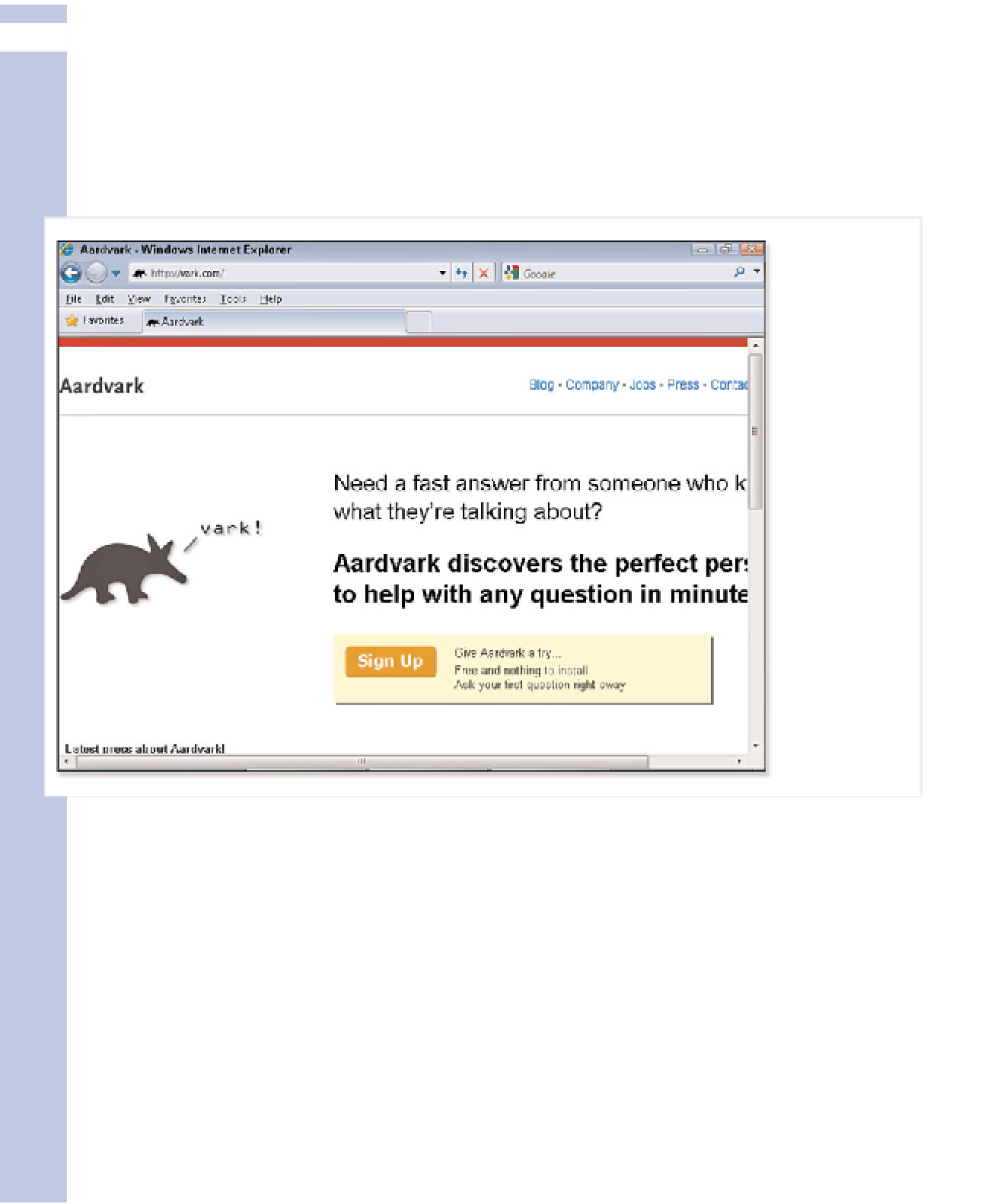Information Technology Reference
In-Depth Information
II
People want to know how to relate to you as an author. If you're an authority—in a sense, talking
down to them, however nicely you do it—then they'll want your credentials. You can also position
yourself as a partner with your blog visitors, a fellow seeker of knowledge, conversation, or other
goals. You can even position yourself as the learner and ask your blog visitors to be the authorities.
A new site called Aardvark, at www.vark.com, is shown in Figure 7.2. It's set up just for this
purpose.
Figure 7.2
Vark.com
helps you
learn—or
share what
you know.
The thing that really annoys people is when you position yourself as an authority and overtly talk
down to them when you don't have the necessary background or knowledge to do it. By providing
your background information online, you help your blog visitors understand how to relate to you.
This kind of information might encourage not only site visits but comments.
An “About” page is even more important on a blog with more than one regular contributor. Site vis-
itors will want to know the overall purpose of the blog and the relationship of different authors of
the blog within that. If two of the blog's authors disagree, who might the visitor want to pay more
attention to? Where is each author coming from?
This kind of page can focus more on the people involved (About the Authors) or about the blog
itself, with authors advancing the blog's purposes (About the Blog). If the latter, you can actually
call the section “About the Blog,” or use the name of the blog instead.


